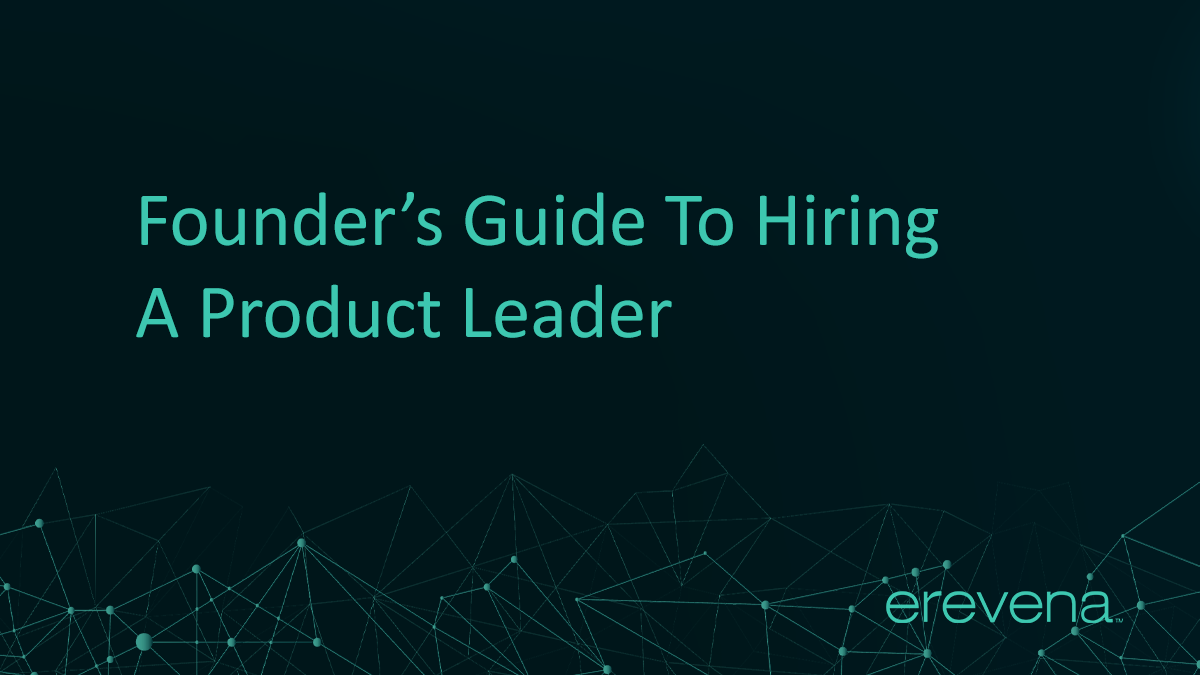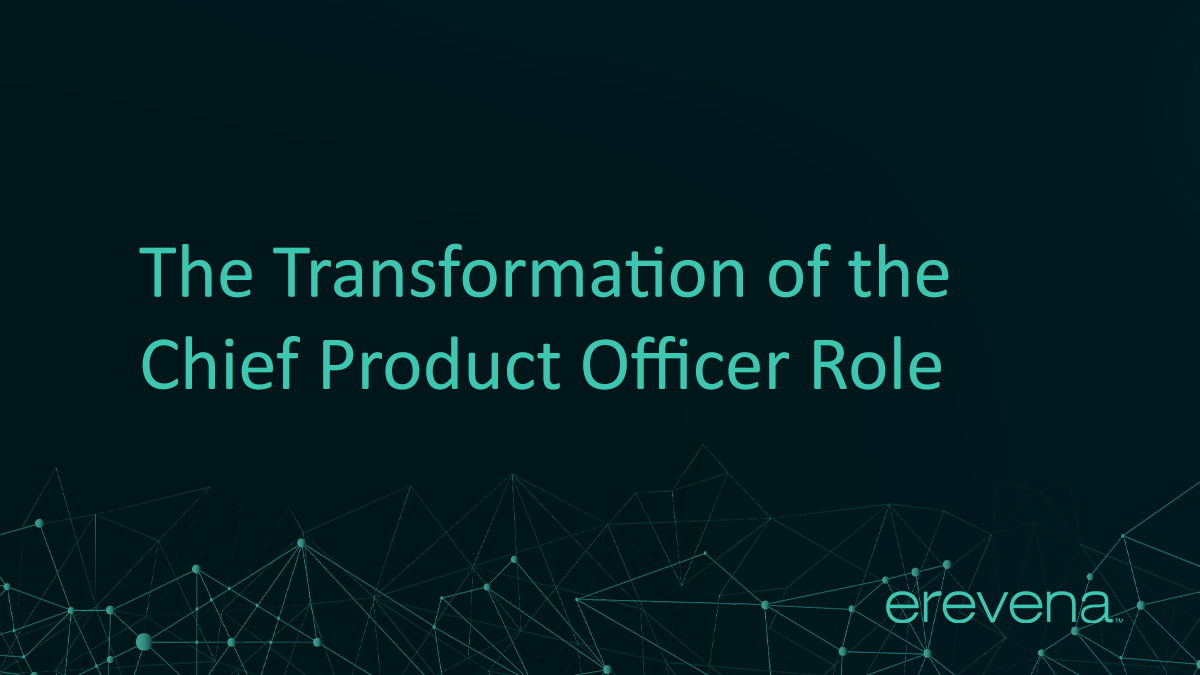The European software industry is booming, with 2019 a record year for venture investment in tech. At Erevena, we spend a lot of time helping rapidly growing SaaS companies to hire commercial executives who in-turn need to build amazing go-to-market teams quickly. In such a competitive landscape, it’s more challenging than it has ever been to hire and scale an outstanding sales organisation.
We were delighted to be joined by Chris Baker (MD EMEA at Anaplan) and John Crossan (former VP Sales EMEA at Zendesk) who shared their knowledge on how to build a world-class SaaS sales organisation at scale in Europe.
The morning’s briefing addressed the following questions:
- In such a competitive market, how do you convince the top 10-20% of European SaaS sales talent that your company is the best place for them?
- How do you keep the quality of your sales team high?
- How do you create an environment to then retain top performing sales executives and managers for the long-term, particularly in a climate where they always seem to have other (very credible) options?
What are the factors involved in a candidate’s decision?
The SaaS recruitment market in Europe is now very candidate-driven. Historically, far fewer European SaaS companies had the capital to scale into household names and therefore the small percentage that did generally had a good chance at closing out the best talent. Now, with the large injection of VC money into Europe that we are currently witnessing, it often feels like there are more great opportunities than there are credible candidates at any given time. Sales execs and sales managers have more options than ever and therefore a strategic shift is required in the hiring process towards proactive relationship-building for the long-term. Also, to put it bluntly, most candidates now expect to be sold-to more than they expect to need to sell themselves in the early stages of a hiring process.
“There has been a significant movement from a requisition-centred to a candidate-centred acquisition process. It’s a candidate’s market and recruitment techniques must reflect this.”
– John
When it comes to joining or not joining your business, John identified the three key factors in a candidate’s decision as money, career opportunity and candidate experience. He stressed the importance of not under-valuing the latter. With an increasing number of companies offering strong financial packages, the importance of money is diminishing as it becomes a base line that needs to be built on. Contrastingly, the experience someone has with your company, particularly in the recruitment process, is arguably the most important factor at play and is something companies should focus heavily on.
John cited this as one of the primary reasons for joining Zendesk. At each stage of the hiring process, his value was emphasised. Communication levels were very strong and important meetings were bumped to ensure his movement through the process was smooth. But there were softer touches that had a big impact as well; something as simple as leaving a leaving a glass of water, a bar of chocolate and a handwritten note personally welcoming him to the offices gave him an amazing impression of the culture and contributed to his overall experience as a candidate. Chris agreed that the importance of candidate experience should not be underestimated. Personal emails from the CEO (even if they are not directly involved in the interview process) and slick processes have made the difference for him as a candidate in the past too.
What are the critical themes when trying to convince a sales exec/manager to choose your company?
Alongside building a personal relationship, Chris emphasised the need to be honest about the challenges. Particularly with companies hoping to scale rapidly, it is important to find the balance between pitching the bigger picture alongside the not-quite-finished article. Those who seem reluctant to face potential difficulties are unlikely to be a suitable long-term fit and identifying this early on is beneficial for both candidate and company.
Additionally, in the current climate, the talent market moves incredibly quickly. Recruitment processes should mirror this speed in order to secure the best people. Historically, hiring managers wanted 4-5 amazing candidates in a process before they would make a decision but now, when you have found somebody who is a great fit for the role and the business, you should move to hire them as quickly as possible or risk losing out. Both Chris and John have felt the frustration of a slow hiring process and now recognise that sometimes it is necessary to prioritise recruitment cycles above all else in order to get the best people. Those key hires can make all the difference.
“It’s vital to balance the need to grow a team rapidly with the need to make focused, valuable hires.”
– Chris
When at Zendesk John used a very data-driven approach for forecasting in which ‘talent’ was a vital component. He used the formula of ‘Sales Pipeline x Talent = Revenue’. Each week, the sales pipeline was measured and compared against the existing talent pool, as well as projections of how many days it would take to hire new talent. This allowed for more accurate forecasting as well as a clear picture on where any potential issues might lie as they scaled the region (for example, is it taking too long to hire top people?).
How do you keep the quality of your sales team high?
Both Chris and John warned against a build-up of mediocrity that sometimes occurs when a business is scaling quickly and hiring large numbers of salespeople, because it is imperative that your top-performers feel like they are part of an amazing team. Everyone makes hiring mistakes from time to time, but it is important to tackle this quickly. Probation periods are there for a reason and if somebody has not given the right indicators after 3 months, you should move them out. On this topic, both Chris and John felt passionately that analysing a person’s performance needs to be broader than just how well they are doing against sales targets. A bad attitude can have just as negative an impact as poor quality of work and cultivates a frustrating working environment for other team members. Sometimes a disruptive over-performer’s revenue contribution is simply not worth the adverse effect on team and culture.
Chris is also passionate about and cited the importance of personal development. He stressed that this is particularly important when promoting people through your business. First or second-line sales managers are often appointed because they were formerly top-performing reps, but they can lack the necessary leadership skills to be successful in their new role. Invest in them at these pivotal moments of their career to help keep the quality of both sales performance and the culture high.
How do you retain top performers for the long term?
Chris believes that the biggest factor here is relationship. Investing in building close connections with your team (and fostering that same attitude in them for their teams) is your primary tool for retention. John agreed and spoke of the importance of maintaining a consistent and open dialogue with employees regarding their career ambitions, especially when making external hires that could be seen to limit the opportunities for existing staff.
Both felt that keeping sales staff informed about the broader company strategy and the importance of their role in that is also critical. Chris rightly pointed out that any employee needs to see the connection between their day job and the bigger picture and sales staff are no different. If you do all of the above, you increase the chance of a top-performer coming to you before problems escalate too far, which gives you a chance to fix things before they reach the point of no-return.
In both Chris and John’s experience, when a person has accepted a new offer and resigns, it is almost always too late.
“Resignations are difficult to cure; the better way is to prevent.
– John
At this stage all the stats suggest that, even if you successfully turn that person around and convince them to stay, they will very likely be gone within 6-12 months anyway. If a top performer (who you don’t want to lose) comes to your office with a resignation letter, John’s primary piece of advice is to drop everything. If you value them that much, even the big client meeting can and should be rescheduled. The cost of losing great people can be far greater than the deal you are working on.
That said, losing good people is inevitable from time to time. There are certain trigger points at which you should be more prepared for this. Chris highlighted the 3-year anniversary as a critical one. The end of year 4 normally represents the end of stock vesting cycles so this is another classic crossroads for many sales execs and managers. It goes without saying that meaningful events of any description (IPOs, acquisitions, etc) generally lead to an outward flow of talent too.
“In some ways, you must accept that it is a fluid market and people will move on.”
– Chris
Pre-empting these key moments of outflow can be very beneficial for retention, especially alongside the aforementioned open dialog about career aspirations. But sometimes you must just accept that people will move on and the view was that handling inevitable resignations with dignity and respect is also hugely important for fostering a great culture and an environment of trust.
Conclusion
As the software industry continues to boom, companies that need to scale fast must adapt to deal with this increasingly competitive environment. Sell hard in the early stages, build a slick interview process and prioritise the candidate experience throughout. Once you have hired top people, build close relationships with them for the long-term and teach your managers to do the same. Pre-empt the classic trigger points, move mediocre performers out of the business respectfully but quickly and do not allow even the most impressive quota-crushers to compromise your culture.
Share this article:













